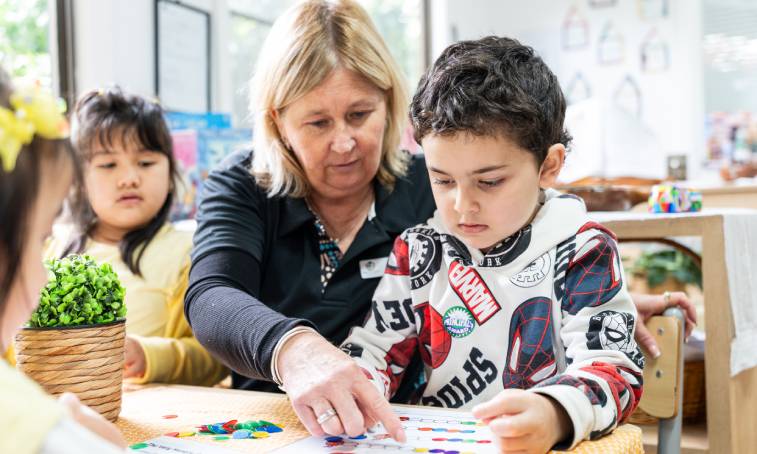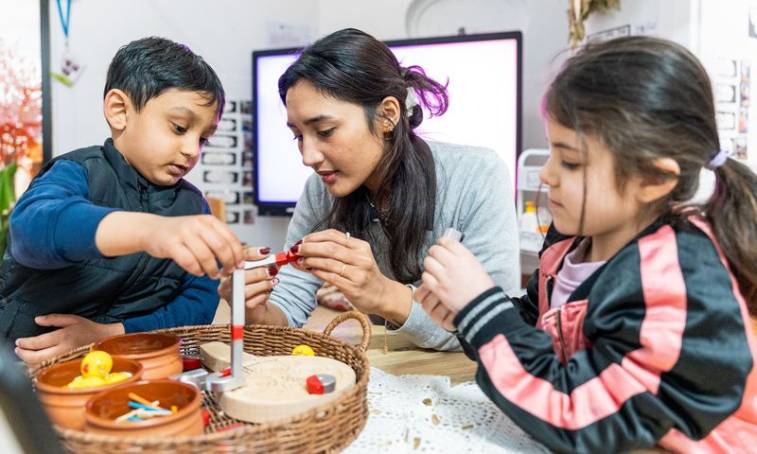That feeling when your child seems to be missing milestones and no one gives you clear answers, it’s both confusing and heavy. The worry grows louder with time, especially when your gut says they need help but you’re unsure what to do next.
No one hands you a guidebook for these moments, just endless opinions and Google searches on how to help a child with developmental delay. You start noticing things like unclear speech, delays in walking, or struggling to play with others, and wonder if it’s just a phase or something more.
At Next Generation Kindergarten, we support families in Chester Hill facing the same questions by offering heart-led guidance, tailored programs, and a caring space where each child can grow at their own pace.
Understanding Developmental Delay
Some children bloom early, others take longer – but what happens when the wait feels heavy and uncertain? Spotting developmental differences early can help bring those looming questions into focus.
Key signs to watch for
Children grow on their own timeline, but it’s helpful to notice if they’re missing expected milestones in speech, movement, or social skills. Signs like difficulty making eye contact, delayed crawling or talking, or trouble following simple instructions can be early flags.
At Next Generation Kindergarten in Chester Hill, our team pays close attention to such signs during everyday play and helps parents notice them too.
Common types of developmental delays
Delays vary widely. Some children may struggle with speaking (language delay), while others may find coordination or movement tricky (motor delays).
Emotional understanding, social interactions, or daily tasks like dressing might also lag behind. Our programs at Next Generation Kindergarten gently encourage all areas – offering the right stimulation at every stage.
Causes and contributing factors
Every child is unique, and so are the reasons behind their developmental delay. Sometimes there’s a genetic influence or complications during birth. Other times, it may be due to environmental stress or unknown reasons. The good news is – children respond positively when given the right support early.
Diagnosing developmental delay
A proper diagnosis starts with structured developmental screening. Paediatricians or child health nurses observe behaviour, listen to parents’ concerns, and fine-tune what kind of help is needed. At our centre, we often guide families towards seeking professional support when we notice developmental red flags.
Starting Professional Support
Knowing your child needs help is one thing; figuring out where to start is another. That’s where early assessments come in, offering families a clearer picture of how to help a child with developmental delay in practical and supportive ways.
Engaging in early assessment
Qualified professionals gather details from caregivers, observe the child in natural settings, and may use screening tools. These checks build a full picture. Families at Next Generation Kindergarten are guided through this process with the steady hands of educators who know how to notice the ‘small stuff’ that can mean big things.
Working with childhood partners and paediatricians
Our educators often support families as part of a wider team that might include healthcare providers and therapists. We work with NDIS-coordinated care plans and help turn professional advice into everyday practices inside our classrooms.
Importance of early intervention
Time really matters. Early help opens up windows of growth that build long-term skills. Intervention at a younger age allows children to form stronger foundations in thinking, speaking, and doing. That’s why our nursery and toddler programs offer targeted, age-appropriate support from the beginning.
When to seek additional medical input
If symptoms don’t improve over time, spacing out support isn’t helpful. Neurologists or child psychologists can provide further evaluation and therapy. We support families in recognising when it’s time for specialised input – and help connect them with trusted professionals nearby.
Practical Home-Based Strategies
Sometimes the best help begins right in your living room, with simple routines and thoughtful play.
Creating a supportive daily routine
Consistency brings comfort. Predictable mornings, clear rhythms during meals, play, and sleep help children understand the world around them. Our educators offer schedules to mirror at home, giving kids confidence across both spaces.
Exercises and interactive games
From squishy balls to sorting games, playful learning at home builds motor skills and thinking patterns. We share lots of fun activity ideas with our families, like obstacle courses or naming games that support motion, words, and memory.
Enhancing communication and language
Simple everyday talk can do wonders. Naming items aloud during play or using sign language alongside words deepens understanding. In our Preschool Program, this is part of every day, and we love seeing families do the same at home.
Boosting confidence and independence
A small high-five, a proud smile, or letting them choose a toy – these moments build self-belief. We encourage families to set tiny goals that children can reach and feel good about. Bit by bit, confidence blooms.
Educational and Therapy-Based Interventions

Once support is in place, schools and therapists help children move forward in ways matched to their development.
Tailoring school and educational support
Each child brings different strengths. Individualised Education Plans (IEPs) help create goals suited to how they learn best. We stay connected with schools and offer early guidance as children prepare through our School Readiness Program.
Using specialist therapies
Speech therapy can improve communication. Occupational therapy builds fine motor skills while physiotherapy helps with movement. We often collaborate with therapists, incorporating their strategies into our care routines.
Inclusive learning environments
Being part of a group matters. Many children with delays thrive through shared play experiences with others. In our mixed-age classrooms, children learn from and support each other in natural ways.
Coordinating with educators and school teams
Great outcomes happen when everyone talks honestly and openly. We maintain clear communication with teachers, specialists, and families, ensuring that aligned strategies are implemented across home, school, and care settings.
Social, Emotional, and Behavioural Support
Emotions can be big and mixed up for any child, but extra support helps calm the chaos.
Supporting emotional well-being
Children often express emotions through behaviour before words. We help families notice signs early – offering comfort through quiet activities or simply staying close while the tide settles.
Encouraging peer interaction
Friendships begin with shared moments. We suggest playdates with kind peers or invite families to centre events where kids can bond naturally. Social play builds confidence block by block.
Promoting self-regulation and behaviour
Clear directions with gentle reminders help children know what’s okay. We use visuals, short phrases, and praise calm behaviour. These same approaches can work beautifully at home with consistency.
Explaining differences to the child
It’s okay to talk honestly with young children. Simple words like “Everyone learns in their own way” help them feel seen and valued. We support these chats with storybooks and calming conversations.
Building Support Around the Child
Raising a child with delays takes a village. The village must not only love them, but understand them deeply.
Collaborating with family and community
Share what works across trusted hands. We meet regularly with families and are part of community support networks to strengthen consistency across all aspects of the child’s life.
Parent education and mental health support
You’re not alone. From free playgroups to informal chats during pick-up, we connect parents with support networks or counselling when needed. Care begins by caring for the carers too.
Advocating for children’s access and rights
Every child deserves full access to learning, growth, and joy. We help families navigate school transitions, NDIS funding, and medical appointments so no child is left out.
Emphasising patience and long-term vision
Celebrate the small wins – the first clear word, the brave step forward. Progress comes slowly for some, but it’s still progress. At Next Generation Kindergarten, we cheer for each child’s personal pace.
When Worry Creeps In, You're Not Alone
Some days are filled with joy, others with uncertainty – especially when you’re watching your child struggle to keep up. It’s okay to wonder if something more is going on, and even better to look into it early.
Finding support in those early signs can give your child the steady footing they need. With the right guidance and encouragement, emotional and developmental progress doesn’t just happen – it grows steadily, one loving step at a time.
At Next Generation Kindergarten, we believe in meeting every child where they are. Let’s walk through this together – explore our tailored programs today.

